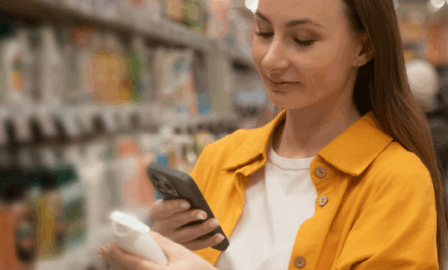London 2012: A Sponsorship Game
While July 27th marks the official start of the London 2012 Summer Olympics, Olympic buzz has been spreading around the world for months. London 2012’s biggest sponsors such as Proctor & Gamble, Coca-Cola, Cadbury, and McDonald’s launched their Olympic advertising campaigns as early as April. This year, the International Olympic Committee and London organizers have limited advertising to sponsors that have contributed $7.8 million to $156.6 million to the Games. Only these big sponsors are allowed to use Olympic-related images or words in conjunction with their business name. Organizers are taking these advertising rules very seriously, employing 250 enforcement officers to patrol areas around the Olympic venue searching for violators. Even in the United States, a resolution has been introduced on Capitol Hill to protect Team USA sponsors from “ambush marketing” by non-sponsors. Sponsors have paid high prices for the exclusive privilege to advertise with the 2012 Olympics and hope to generate net returns from their investments.
Sponsoring a Sporting Event
At the very least, sponsoring a sporting event seems to boost brand popularity. During FIFA’s World Cup in 2010, NM Incite compared the share of online World Cup buzz held by World Cup sponsors and their competitors. During the first two weeks of the tournament, 7 of the top 10 companies with World Cup buzz were official sponsors. Notably, official sponsor Budweiser from Anheuser-Busch, which trailed its non-sponsor competitor Carlsberg two weeks prior to the tournament, was able to win out as the most buzzed about brand of beer once the tournament began. This suggests that Budweiser benefited greatly in terms of World Cup-related Internet buzz by being an official World Cup sponsor. Coca-Cola also experienced a boost in popularity after it sponsored the 2008 Summer Olympics in Beijing. While Coca-Cola and Pepsi both increased spending on marketing for the Summer Games and experienced close retail sales throughout the Olympics, 43% of online consumers indicated that Coca Cola was their favorite brand compared to only 20% who preferred Pepsi. By increasing brand visibility, sporting event sponsorships place a brand at the forefront of consumers’ minds and preferences.
Stock Performance
Various studies that examined the relationship between sporting event sponsorships and stock performance have reached mixed conclusions. A sample of 53 official product sponsorships for the NFL, MLB, NHL, NBA, and PGA found that, on average, a sponsor’s stock share value rose by about 1.1% after the sporting event. A separate study of 114 sponsorship announcements for NASCAR, men’s and women’s professional tennis and golf, and NCAA bowl games found no evidence that stock market investors react positively or negatively to event sponsorships, suggesting perhaps that the value a firm gains from a sponsorship is equal to the cost of the sponsorship. Another study of 28 companies that sponsored 15 major sports events between 2000 and 2009 found select instances in which daily stock returns and volatility changed significantly during and after the sporting event compared to before the event. It’s apparent that sponsoring a sports event can increase stock performance; however, these 3 studies all emphasize that the effect is event and firm-specific.
In order to improve stock performance through sponsorship, firms must be willing to turn sporting event sponsorship into a sustained practice. The study of 28 sponsoring companies found that the common characteristic among the 13 companies that experienced a significant change in stock price behavior during and after the sporting event was that they were well-established firms that consistently sponsored sports events. Over time, continuous sports sponsorships shape the perception that investors have about a brand. On the other hand, a one-time sponsorship is ineffective because it does not have a lasting effect on brand perception. 14 of the 15 sponsoring companies that experienced no significant change in stock price behavior during and after the sporting event they sponsored only sponsored a single event.
Sponsorship plans also need to extend well beyond the event itself because brand preferences that are established through sponsorships are not permanent. A study that compared Coke and Pepsi sales between February 2006 to December 2008, which encompasses the Olympics in Torino and the Summer Olympics in Beijing, found that while Coke’s Olympic sponsorship increased brand choice ratio (Coke:Pepsi) by 0.438 during the Olympic period, the effect was only significant short-term. To maximize returns, sponsoring companies need to develop a strategy to capitalize on the buzz about their products generated during the event and convert it from a short-term into a long-term gain.
Most importantly, firms must carefully select which sporting events to sponsor. Ultimately, it all comes down to congruence: whether or not the brand aligns with the sport. The aforementioned study of 114 sponsorship announcements found that congruent sponsorships resulted in a statistically significant 3.4% greater share price gain than incongruent sponsorships.
Brand-Sport Congruence
A look at sponsorships of the World’s Top 10 Most Valuable Sporting Event Brands by top consumer products companies demonstrates the importance of brand-sport congruence. None of the sporting event brands were sponsored by a tobacco company, which does not come as a surprise considering the negative health effects of tobacco. All of the sporting event brands had at least 1 beer company sponsor with Anheuser-Busch sponsoring 8 out of 10 sporting events. When it came to carbonated soft drinks, Coke sponsored 7 events and Pepsi sponsored the 3 remaining events. Of the Top 25 Food and Beverage Companies based on Total Revenue LTM, 9 companies sponsored at least one of the sporting events in our sample. The companies that didn’t sponsor any sporting events were either in the agriculture and meat industry or based in Asia and South America (none of the events in our sample were in Asia or South America). P&G and Unilever were the only two household and personal care product companies that sponsored sporting events, reflecting the difficulty of establishing a connection between household and personal care products and sports. P&G has addressed this challenge by creatively approaching its Olympic sponsorship with its Thank You Mom campaign. Instead of advertising to athletes and sports fans, the campaign utilizes the universal nature of motherhood to target consumers all around the world.
Social Media
P&G’s Thank You Mom campaign is making a splash not just on TV, but on social media sites as well. London 2012 is being coined the “Socialympics”, referring to the unprecedented use of social media in association with the Summer Olympics. A company called Sociagality that analyzes brands’ social media activities has launched a London 2012 Social Scorecard, which rates sponsors based on their social media performance using Facebook, Twitter, YouTube, and the company’s website. According to the scorecard, P&G is ranked first in performance as well as social media potential. London 2012’s strict advertising regulations have even been extended to social media, preventing non-sponsors from using certain words related to the Olympics in their tweets and Olympic competitors from mentioning any corporate sponsorship or promotion without permission. Olympic sponsorship has been elevated to another realm with the multifaceted use of social media channels. If the “Socialympics” generate more returns for sponsors than in the past, it is likely that future sports sponsorship agreements will extend past the traditional television, print, and on-site advertising to the Internet.
Expectations for sports events sponsorships are also changing. Leading up to the Olympics, a movement has arisen to ban McDonald’s and Coca-Cola from sponsoring the 2012 Games because they violate London 2012’s promise to “deliver a legacy of more active, healthier children across the world”. The London Assembly even passed a motion to ban products associated with childhood obesity from sponsoring the Games that could impact McDonald’s and Coca-Cola. However, both sponsors argue that they are making adjustments to align themselves with the ideals of the Olympics by selling healthy choices. Coca-Cola expects that 75% of the drinks it sells will be water, juice, or sugar-free and McDonald’s will provide healthier options such as porridge, bagels, and salads. Unlike at prior Games, this is the first time both companies are threatened with losing sponsorship rights. It will be interesting to see how consumers react to Coca-Cola and McDonald’s during the upcoming Games. We could be entering a new era where popular brands linked to unhealthy habits are banned from sponsoring all sporting events.
Certain consumer products companies can benefit greatly from the brand recognition generated through sports event partnerships. However, the London 2012 Summer Olympics demonstrate that the definition and expectations for corporate sponsorship are changing. In addition to the incredible gymnastics routines, blazing fast races, and thrilling matches of the upcoming Olympics, we will be keeping an eye on how Proctor & Gamble, McDonald’s, and Coca-Cola’s fare in the sponsorship game.


